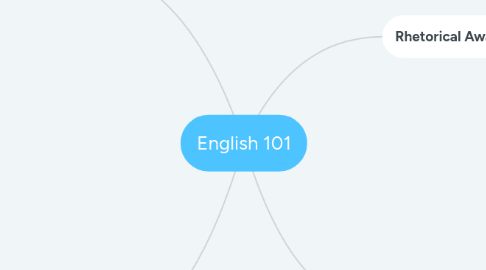
1. Reflection and Revision
1.1. 3B. Produce multiple revisions on global and local levels
1.1.1. Personal Literacy Narrative
1.1.2. Discourse Community Research Paper
1.1.3. We peer review in class with almost everything we do and it has been very helpful in my own experience
1.2. 3C. Suggest useful global and local revisions to other writers
1.2.1. Discourse Community Research paper
1.2.2. Personal Literacy Narrative
1.3. 3E. Evaluate and act on peer and instructor feedback to revise their texts
1.3.1. Personal Literacy Narrative
1.3.2. Discourse Community Research Paper
1.3.3. In class article response on 9/19
1.4. 3F. Reflect on their progress as academic writers
1.4.1. Personal Literacy Narrative
1.4.2. Discourse Community Research Paper
1.4.3. Mind Map
1.4.4. It is important to look over your work once it is completed to see what turned out good and what can be changed next time
2. Conventions
2.1. 4A. Follow appropriate conventions for grammar, punctuation, and spelling, through practice in composing and revising
2.1.1. Personal Literacy Narrative
2.1.2. Discourse Community Profile
2.1.3. Journals
2.1.4. This is a very simple thing to lose points for on papers and I have found that peer review is very helpful to make sure all the grammar and punctuation is proper
2.2. 4E. Apply citation conventions systematically in their own work
2.2.1. Discourse Community Research Paper
2.2.2. Interview Report
2.2.3. Chapter 28 in HWW
3. Rhetorical Awareness
3.1. 1A. identify the purposes of, intended audiences for, arguments in a text, as situated within particular cultural, economic, and political contexts
3.1.1. Journals
3.1.2. Community Profile
3.1.3. Discourse Community Research Paper
3.1.4. This is an SLO that I would really like to focus on because it is important to know who the intended audience is and making sure the paper is properly suited for them
3.2. 1C. Analyze how genres shape reading and composing practices
3.2.1. Personal Literacy Narrative
3.2.2. This was a big focus on our first project and we spent many class sessions talking about the different genres and reading about them in HWW
3.3. 1D. Read in ways that contribute to their rhetorical knowledge as writers
3.3.1. In class article response on 9/19
3.3.2. In class activities on 10/19
4. Critical Thinking and Composing
4.1. 2C. Incorporate evidence, such as through summaries, paraphrases, quotations, and visuals
4.1.1. Interview Report
4.1.2. Chapter 28 in HWW
4.2. 2E. Support ideas or positions with compelling discussion of evidence from multiple sources
4.2.1. Discourse Community Research Paper

